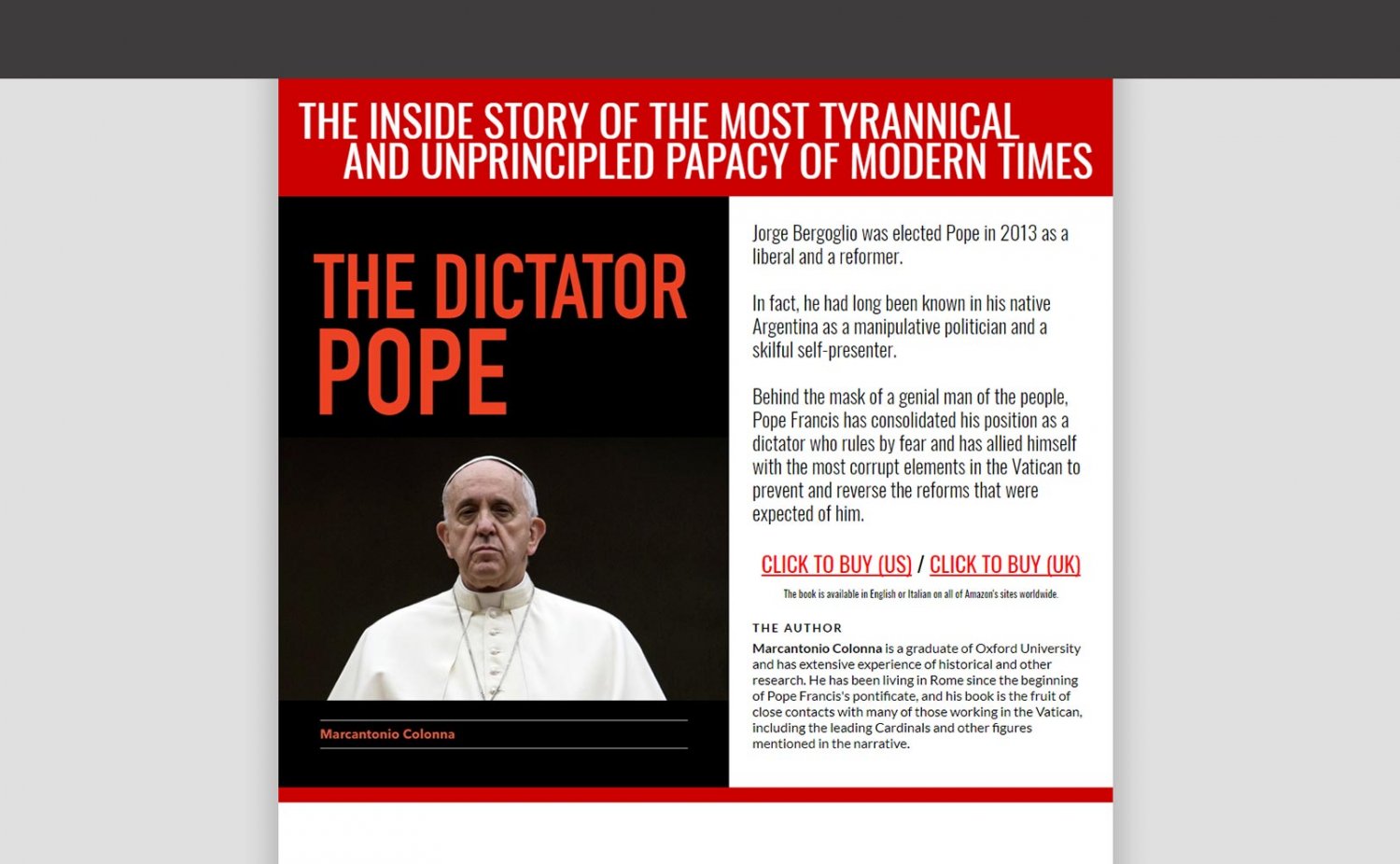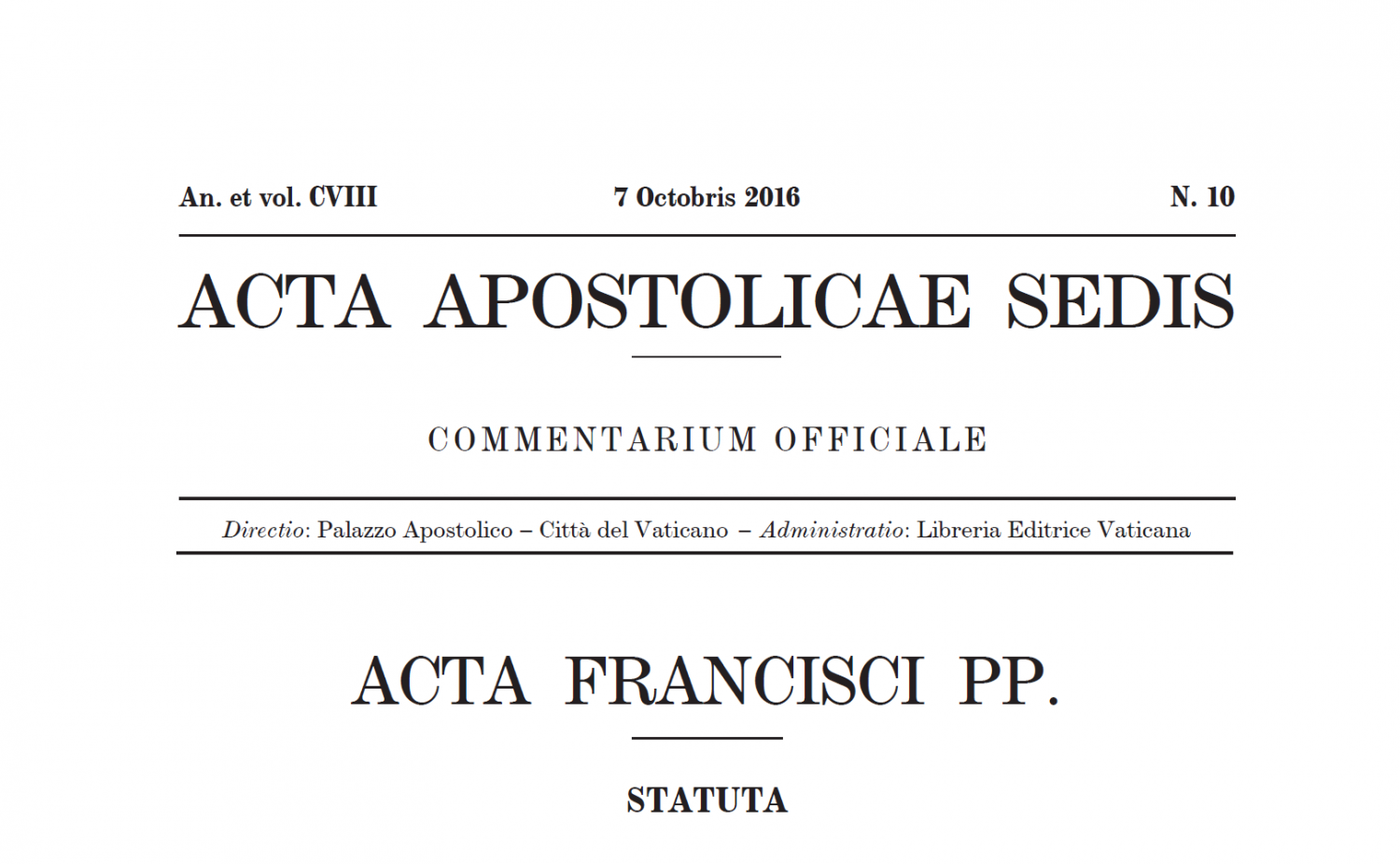Or is it perhaps to direct our intention away from his heretical proclamation in the Offical Acts of the Apostolic See or perhaps the facts disclosed in The Dictator Pope?
Regardless, allow us to expand on the post below.
The Aramaic is pretty well translated as, "And let us not be put to the test, but deliver us from the Evil One."
The Aramaic, at least liturgically, has the same original source as we do in the West. It is from Greek.
The Greek was translated into Latin by St. Jerome as, "Et ne nos inducas in tentationem." Which is well translated into English as "And lead us not into temptation." It was at the command of St. Damasus, Bishop or Rome and Pope whose feast day is today that St. Jerome began his work.
In the Divine Office for today, we note in the third reading from Isaiah 13:9-11.
"Behold, the day of the Lord shall come, a cruel day, and full of indignation, and of wrath, and fury, to lay the land desolate, and to destroy the sinners thereof out of it."
I am no scriptural scholar, I understand not Greek nor Aramaic, I speak no other language other than English and can understand some basic Latin due to absorption of 35 years of liturgical music and chant. But even to this ignorant soul, I know that the phrase from Our Lord never meant that "He" would lead us into temptation. It seemed to me to always be what it was, -- prevent us from falling into temptation and from being susceptible to Satan.
From Paul Anthony Melanson:
From Paul Anthony Melanson:
"The RSV records the Lord’s Prayer as follows:
6:9 Pray then like this: Our Father who art in heaven, Hallowed be thy name. 6:10 Thy kingdom come. Thy will be done, On earth as it is in heaven. 6:11 Give us this day our daily bread; 6:12 And forgive us our debts, As we also have forgiven our debtors; 6:13 And lead us not into temptation, But deliver us from evil.
The Greek text is accurately rendered by the RSV, "Lead us not into temptation" with God understood as the subject. However, we should not understand this to mean that God actively tempts us to sin but that He allows us to undergo testing, including at the hands of the Tempter. In fact, this is precisely what happened to the Son of God who was driven or led by the Spirit into the wilderness, wherein He was tempted by Satan.
Father Hunwicke in his usual manner gets right to it.
Lead us not into temptation. It is unlikely that the Greek and Latin words translated by temptation meant the sort of thing we mean by 'temptation' in the confessional ... the 'temptation' to steal something, or to speak uncharitably, or to suspend the Custody of the Eyes. Peirasmos has been thought to refer much more probably to the time of testing, that is to say, of being tortured or intimidated to give up our Faith. Scripture teaches us that the End Times will indeed be marked by just such testings or persecutions. It is natural to ask God, whose providence disposes the times, to spare us this. [See for example Mt 26:41; Luke 8:13; Apocalypse 2:10 and 3:10.]
(And, by the way, Evil could be either masculine or neuter (tou ponerou). Many, probably most, people think it refers to the Evil One.)
So, in my opinion, PF is proposing a revision which is not, as he appears to have been told, a revised translation but a radical change in the meaning of the Greek original. With sorrow, I have to say that this new example of his gigantic self-confidence does not surprise me.
What repeatedly ... it seems, almost daily !! ... irritates me about PF is his endless propensity to treat the Depositum Fidei, the Universal Church and what she has inherited from the Apostles or from the generations since, as something which is at his disposal to change, to criticise, or to mangle in any way that appeals to his personal whimsy at any particular moment. He is like a toddler who has been given toys to play with ... a big, boisterous and wilful child who likes to play with them rather roughly; whose commonest phrase is "I want ...". If anyone suggests that he should perhaps handle them rather more gently, he throws a tantrum.
O Lord, deliver us from Francis.






